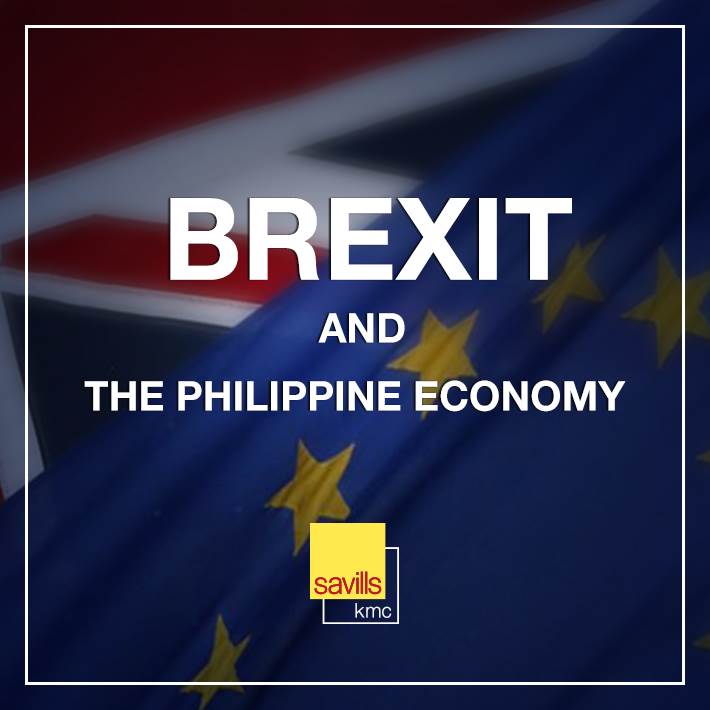
Reading Time: minutes
It has been a month since the UK announced its exit from the European Union, and still the future of the global economy hangs in the balance. Brexit continues to heighten uncertainty and volatility in the global economy, increasing turmoil as the world awaits the conclusion of the UK and EU's talks and anticipates the next steps of the major economic leaders.
In the Philippines, however, it is a different story. The country's sound macroeconomic fundamentals seemed to have cushioned the local markets' reaction. The equity market barely moved after the vote, 10-year yields in the bond market quickly bounced back to 4.4% after compressing by 35 points on the referendum date, and the currency seems to have strengthened against the dollar after the appetite for emerging markets picked up. In fact, the PSEi has broken the 8,100-mark for the first time in 2016 this July, driven by the upbeat regional markets, optimism on local corporate earnings, and the inaugural State-of-the-Nation-Address (SONA) of Pres. Duterte.
Impact on foreign investments, trade, remittances
While the Philippines seems impervious to Brexit today, it is likely that some effect will be felt in the mid-term. The Philippines still has some exposure to the UK because it is the third largest source of foreign direct investments (FDI) in the country, contributing 20% of the total net flows in 2015. Any form of decline in investments increases the risk to PH growth's sustainability as our foreign investments is already low. It is therefore important, now more than ever, that the Philippines open up the market and relax the laws on foreign ownership to attract more investors and retain, if not increase, the amount of investments in the country.
In terms of other indicators, PH's exposure to UK is relatively low. Foreign trade won't likely feel major shifts because UK is not among the country's major trading partners, and while UK is an important source of OFW remittances, the decrease will not be significant as it is only the fifth largest source and accounts for only 6% of the total net inflow. For overseas employment, it is possible that the number of migrants to the UK will slightly decline due to the economic downturn. However, we believe that its effect will be gradual and minimal, given that most OFWs in the UK are employed in the nursing and caregiving sectors, which are crucial sectors and are usually unaffected by the state of UK's economy.
Major risks to economic growth still infra, corruption
Brexit may have increased risks in the global market; however, these risks still have a smaller impact compared to internal risks: poor infrastructure, widespread corruption, and sluggish structural reforms.
The country's long-term economic growth will still greatly depend on the Duterte administration's ability to create an overall more business-friendly environment. This means implementing a more effective tax system, reducing administrative burden for businesses, and finding solutions to immediately alleviate the issues in infrastructure -- slow and expensive telco rates, inefficient transport system in key CBDs, and poor connectivity across the country.
For complete and up-to-date reports on real estate and economy, visit KMC-Savills' research and reports page.

